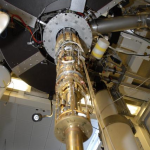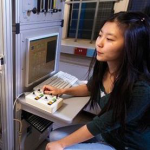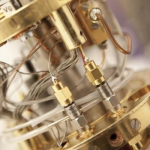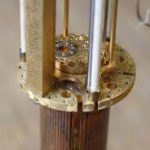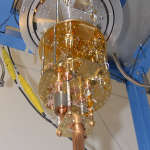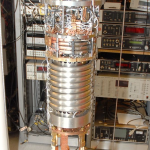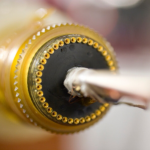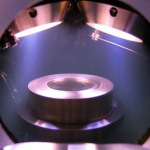Administration of EMP-related Publications
| year | 2018 |
| author(s) | M. Wegner, N. Karcher, O. Krömer, D. Richter, F. Ahrens, O. Sander, S. Kempf, M. Weber, C. Enss |
| title | Microwave SQUID Multiplexing of Metallic Magnetic Calorimeters: Status of Multiplexer Performance and Room-Temperature Readout Electronics Development |
| document type | Paper |
| Keywords | Metallicmagneticcalorimeter, MMC·MicrowaveSQUIDmultiplexer, Flux ramp modulation, Software-defined radio |
| source | J Low Temp Phys 193 462–475 (2018) |
| doi | 10.1007/s10909-018-1878-3 |
| EMP/Horizon2020 | This publication does not include a EMP/Horizon2020 acknowledgement. |
| abstract | To our present best knowledge, microwave SQUID multiplexing (μMUXing) is the most suitable technique for reading out large-scale low-temperature microcalorimeter arrays that consist of hundreds or thousands of individual pixels which require a large readout bandwidth per pixel. For this reason, the present readout strategy for metallic magnetic calorimeter (MMC) arrays combining an intrinsic fast signal rise time, an excellent energy resolution, a large energy dynamic range, a quan- tum efficiency close to 100% as well as a highly linear detector response is based on μMUXing. Within this paper, we summarize the state of the art in MMC μMUXing and discuss the most recent results. This particularly includes the discussion of the performance of a 64-pixel detector array with integrated, on-chip microwave SQUID multiplexer, the progress in flux ramp modulation of MMCs as well as the status of the development of a software-defined radio-based room-temperature electronics which is specifically optimized for MMC readout. |
